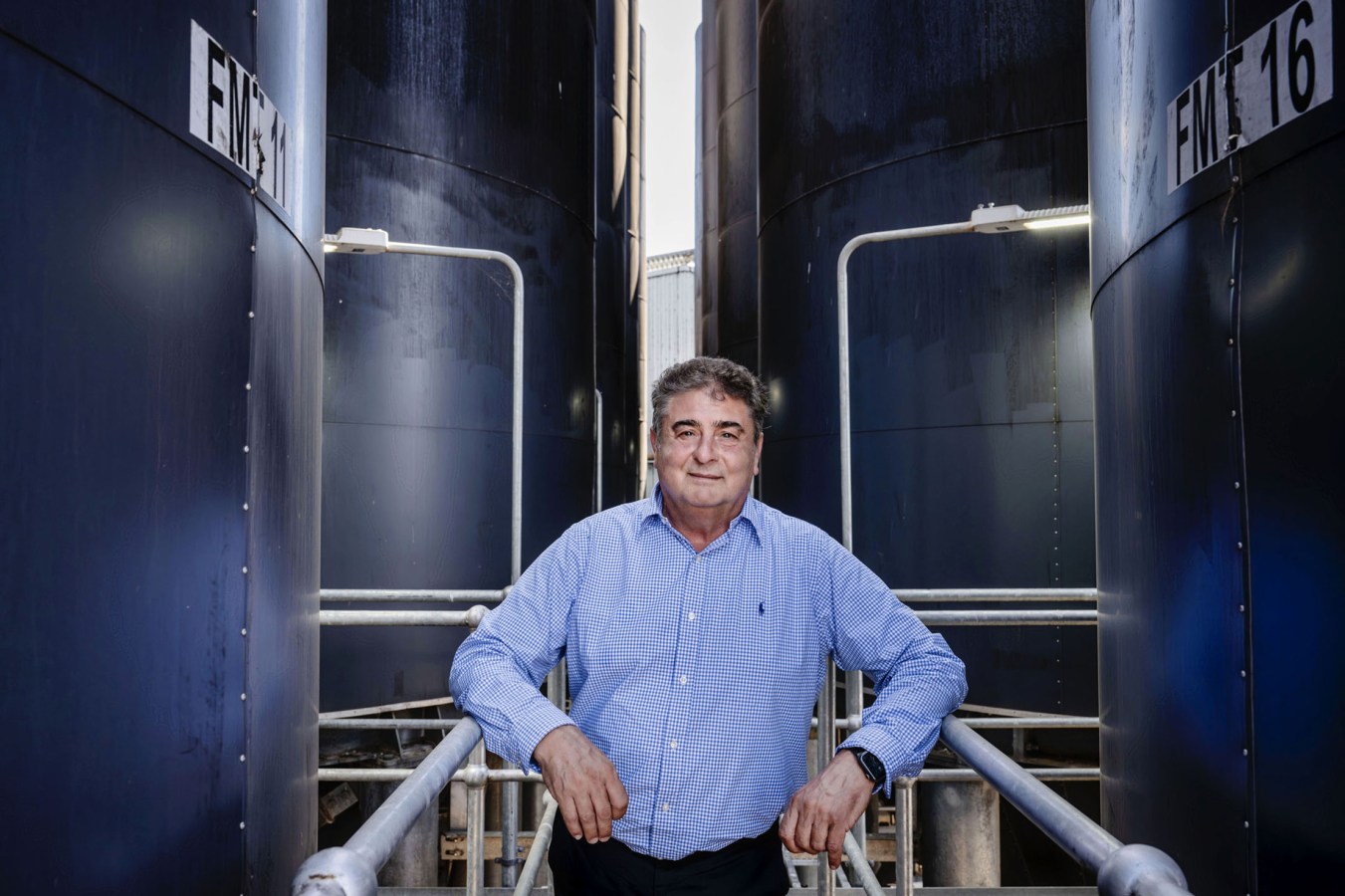Vanta cofounder and CEO Cacioppo talks with Forbes about navigating her company’s growth and putting herself and her company at center stage.

Christina Cacioppo built her software startup Vanta around Midwestern values like thriftiness and not having a big ego–buying its coffee from Costco in bulk and not splurging on fancy office furniture. Now the 37-year-old cofounder and CEO of Vanta is receiving $150 million in new funding for the startup, which automates companies’ security and compliance processes. Cacioppo, a native of Ohio, wants to invest in areas that help Vanta grow while holding onto the company’s scrappy roots.
“Hopefully the chairs will change, and hopefully the coffee does not,” Cacioppo told Forbes. “We don’t want to be stingy to the point of not being prudent. We want to spend on the things that can grow and get them to grow.”
Vanta’s latest funding round, which was announced on Wednesday, values the company at $2.45 billion, up from $1.6 billion when it last raised money in 2022. It pulled in that money amid a tougher funding environment for later-stage software companies that, like Vanta, don’t have AI models as their core product. The new round brings Vanta’s total funding raised to $353 million since 2021. Cacioppo, who is on Forbes’ list of America’s Richest Self-Made Women, has a stake now worth an estimated $550 million.
Sequoia, which led Vanta’s first institutional funding round in 2021, also led this funding round. New investors Goldman Sachs and JP Morgan participated alongside existing investors Atlassian Ventures, Craft Ventures, Y Combinator and others.
“Vanta has some of the best numbers in Silicon Valley,” largely due to the quality of its product and Cacioppo’s leadership, says Sequoia partner Andrew Reed, who is on Vanta’s board. Reed described Cacioppo as an open-minded leader who does “incredible depths of research” to come to her own point of view and make “aggressive decisions.”
Vanta, a member of Forbes’ Cloud 100 list of the best private cloud computing companies had more than $100 million in annual recurring revenue in the year ending this January and now has over 8,000 customers including Quora, Modern Health and Paris-based AI firm Mistral AI. The remote-first company employs 500 people, up from around 340 last year, distributed largely between Vanta’s headquarters in San Francisco plus its offices in New York, Dublin and Sydney.

Before Cacioppo and cofounder Erik Goldman, who is no longer involved with the company, started Vanta in 2018, security and compliance happened largely via spreadsheets and screenshots collected in folders that were shown to accountants and auditors. To save software companies time and money, Vanta’s core product automates businesses’ security compliance processes via continuous monitoring and real-time reports—centralized in an online hub Vanta calls its “trust center.” After helping a company make sure it is secure and pulling all the relevant documentation together, auditors then go through the data and can more easily certify the company as compliant with an array of industry standards, including SOC 2, ISO 27001, HIPAA and GDPR. The firm has since expanded into similar products for non-software companies that buy software.
Vanta wasn’t actively looking to raise additional funding. The firm still has two-thirds—approximately $100 million—of the cash from its 2022 million funding round in the bank, according to David Eckstein, Vanta’s chief financial officer.
Cacioppo believes a higher valuation will be beneficial to Vanta’s core business. Because Vanta’s financial metrics have grown meaningfully since its last fundraise, “it’s helpful to refresh the valuation every couple of years, especially coming out of a couple of years ago where a lot of valuations were not based on fundamentals,” Cacioppo says. “You’re like, look, the world’s best investors looked us up and down, and here’s what they thought. It’s helpful in recruiting, it’s helpful for the customer and it’s helpful to solidify our market leadership.”
With the new funding, Vanta’s goals are to continue expanding internationally, invest in AI and release new products to a wider range of customers, especially larger enterprise customers. Vanta also aims to use the extra cash to maintain a top position among its growing competitors—including startups Secureframe, Thoropass and Drata—and attempt to displace legacy players like OneTrust and AuditBoard. (Its biggest rival startup, Drata, has a dedicated page comparing itself to Vanta, which it calls a “one-trick llama,” a play on Vanta’s purple llama mascot.)
Like most other software companies, Vanta is adding AI features into its products, notably its trust center. New features include a chatbot, Vanta AI, to help with customer questions and security questionnaires that auto-populate answers based on documents uploaded to the trust center, launched in May. The features are built using a combination of existing large language models—from OpenAI, Anthropic and others—and Vanta’s own technology that, for example, helps organize large amounts of data to analyze relevant bits by similarity, according to Vanta director of product management Sanjay Padval.
As Vanta has expanded, it has released new products targeted at a different set of customers: those that buy software instead of selling it, like Omni Hotels, which became a customer in late 2023: “A couple years ago, I would have been like, ‘it’s a real life hotel company. Why would they use Vanta?’” Cacioppo says. Vanta’s Vendor Risk Management product, released last summer, uses Vanta’s core software to help companies vet the security of the software they’re buying more quickly and easily.
With so much cash in the bank, growing quickly is the focus now, Reed says, adding that Vanta is likely eyeing a public offering but didn’t say when. (Cacioppo added that Vanta does not “orient around an IPO internally.”)
As Vanta matures, Cacioppo says two aspects of her role as CEO are shifting. For one, she no longer feels that when she goes to sleep at night, the company also “goes to sleep.” Now, when weekends approach, sometimes she wants to tackle a Vanta problem, and will go for it. Other times, she doesn’t want to look at a computer screen—so she doesn’t. “It’s giving myself the grace in either situation and knowing that … it will all balance out,” says Cacioppo, who has plenty of other interests to keep her busy. She read close to a book a week last year (and just finished Peter Hessler’s “Other Rivers,” a book about education systems in China), speaks seven languages and climbed Mt. Kilimanjaro in 2008.
Pushing against her inclination toward humility, Cacioppo has grown more comfortable with talking about herself and Vanta’s story. With the “rise of the copycats,” she’s learning that self-promotion “does in fact help, sometimes to make sure that folks like what you are doing and how well you are doing it.”
This article first appeared on forbes.com and all figures are in USD.
Are you – or is someone you know -creating the next Afterpay or Canva? Nominations are open for Forbes Australia’s first 30 under 30 list. Entries close midnight, July 31, 2024.
Look back on the week that was with hand-picked articles from Australia and around the world. Sign up to the Forbes Australia newsletter hereor become a member here.


